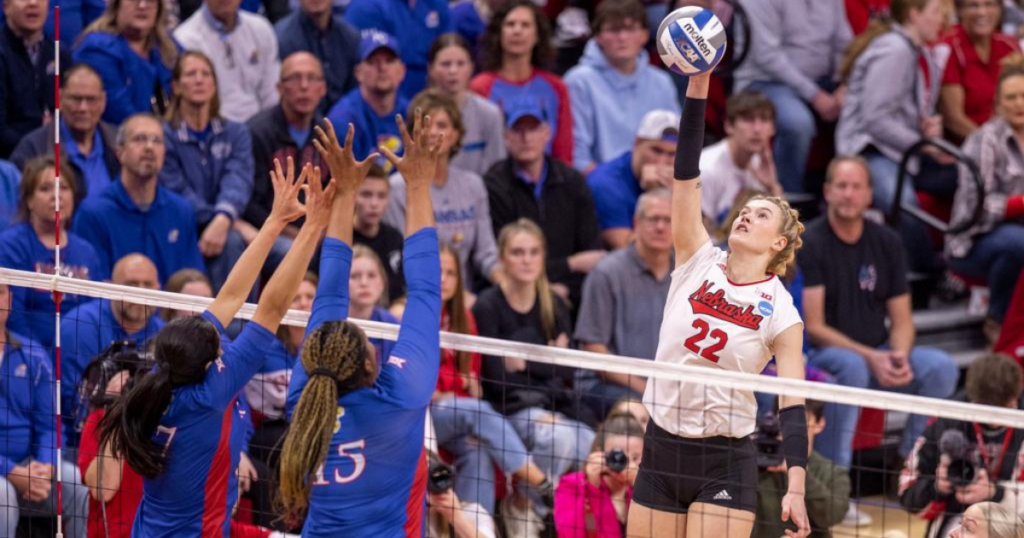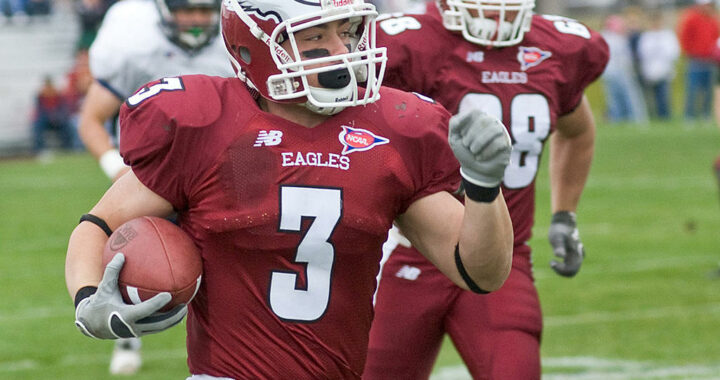The Importance of Mental Health in Nebraska Sports
The importance of mental health in sports is often overlooked when we talk about athletics; it’s easy for us to focus on the physical progress and endurance of athletes and their career achievements; it’s exciting and emotional!
However, did you know that nearly one in four college athletes exhibit symptoms of depression? This condition can significantly deteriorate their lives, impede their willingness to practice, and affect their performance.

The Importance of Mental Health in Sports
Mental health in sports goes beyond just being able to compete with a clear mind; it refers to the psychological and emotional well-being of athletes, and it encompasses a broad range of issues.
These issues are not exclusive to professional big league athletes; varsity and local sports athletes are equally prone to mental health issues. But why exactly is that? What causes an athlete to get to those dark places?
Overtraining and Physical Exhaustion
The pressure to consistently deliver peak performance and be perfect can lead to overtraining, resulting in chronic fatigue, which can trigger depression episodes.
Overtraining can also lead to burnout, which is a state of emotional, physical, and mental exhaustion caused by prolonged and excessive stress. When athletes feel overwhelmed, emotionally drained, and unable to meet constant demands, they are more prone to have mental health issues.
Injuries
Sports injuries can have a profound psychological impact on athletes. The physical pain, combined with the stress of recovery and the fear of not being able to return to the sport, can lead to feelings of loss of self-worth. Athletes who are injured may also struggle with their identity, especially if they have always identified themselves primarily as an athlete.
Moreover, Physical injuries and recoveries can take a big toll on a personal financial situation, which can lead to depression. The constant worry about mounting bills and an uncertain future can distract from the recovery process, and most athletes are unaware of the nonprofit organization that can help them.

Pressure and Stress
Athletes often face immense pressure to perform, both from themselves and others. This constant stress can take a toll on their mental health over time.
For varsity athletes, the pressure of keeping a scholarship and reputation in their academy and society can be overwhelming.
A 2020 study published in the British Journal of Sports Medicine found that elite athletes are at an increased risk of mental health symptoms and disorders because of the constant stress put on them to accomplish their goals.
Fear of Failure
Athletes are frequently under the microscope, with every move scrutinized, every mistake magnified, and every performance evaluated. The high expectations set by themselves and others can create immense pressure to perform flawlessly.
That’s why the fear of underperforming or letting down teammates, coaches, fans, and overall failure can be a significant source of anxiety and depression.

Retirement from Sport
Transitioning out of a sports career can be a challenging time for athletes. Athletes often spend years, even decades, giving everything they have to a sport and a team.
This intense commitment and singular focus can result in a strong identification as an athlete. When the time comes to retire, they may struggle with a loss of identity. And feeling like they lost their purpose in life.
Lack of a Support System
Lastly, despite being surrounded by teammates and coaches, some athletes may feel isolated or misunderstood, which can exacerbate feelings of depression.
While teammates and coaches can provide a valuable support network, they may not fully understand the depth of an athlete’s emotional struggles, especially when athletes are often perceived with a stereotype of being strong and not needing any help or support system.

Athletes, Not Entertainers
Think about Simone Biles, Michael Phelps, Serena Williams, or any of your favorite athletes, and think of what you feel when you see them in action.
Think of the millions of people who show up for the Olympics, for tournaments, or tune in to their favorite sports channel just to see them play. How will that make YOU feel?
In the 21 century, when every move and game is aired and recorded for eternity when social media is used to discuss every move, athletes are more and more like celebrities, like entertainment for the viewers, and it’s like professional sports players.
It’s essential to challenge the notion that athletes exist solely for our entertainment. We must remember that behind every performance is a person who experiences joy, pain, triumph, and defeat. Recognizing and respecting their humanity helps create an environment where athletes can pursue their careers without compromising their mental well-being.
Asking for Help
It might seem simple and every country intuitive for us: if you feel depressed and constantly struggle, you just ask for heldon’tt as we discussed before, athletes don’t usually have the privilege of being vulnerable.

What Stops Athletes from Asking for Help?
Despite the importance of seeking help, several barriers often prevent athletes from doing so. One significant obstacle is the stigma attached to mental health within the sports community.
We have made a narrative where sports players and athletes are not supposed to be sad; they are the ones that should be strong and help our community. Social norms and community pressure will stop them from asking to be helped. Many athletes fear that admitting they’re struggling mentally will be seen as a sign of weakness, negatively affecting their reputation and career.
They’re often expected to ‘push through’ difficulties, leading many to believe they should handle their mental health issues alone.
Overcoming the Barrier
Seeking help is not an admission of weakness but rather a sign of strength and self-awareness. It shows that the athlete recognizes their struggles and is proactive in addressing them. By seeking help, athletes can not only improve their mental health but also enhance their performance and extend their careers.
Furthermore, when high-profile athletes openly seek help for mental health issues, it sends a powerful message to others who may be struggling in silence. It can help to break down the stigma around mental health in sports, encouraging more athletes to seek the help they need.
What Can We Do?
Creating a healthier and more supportive sports environment involves multiple strategies that can help athletes manage pressure. If you are part of any sports community, have friends and family in the atheist realm, or are within your ability to contribute, here are some things you can do

- Encourage Open Conversations About Mental Health in sports
Creating an environment where mental health is openly discussed can help break down the stigma associated with it. Athletes should feel comfortable talking about their struggles or concerns without fear of judgment or repercussions.
- Provide Access to Mental Health Resources
Coaches, teams, and sports organizations should provide access to mental health professionals who specialize in working with athletes. These experts can offer tools and strategies to help athletes manage stress, anxiety, and other mental health challenges.
- Prioritize Well-being Over Winning
While competition is a fundamental part of sports, the well-being of athletes should always come first. Coaches and parents can help create this culture by emphasizing effort, personal improvement, and enjoyment of the sport over winning at all costs.
- Foster a Supportive Environment
Teammates, coaches, and fans play a significant role in an athlete’s experience. By promoting a supportive and respectful environment, we can help athletes feel valued and understood, reducing the pressure they might feel.
- Promote Balanced Lifestyles
Spathlete’stournaments can´t be the only thing in an athlete’s life; sure, they can be one of the most important, but not the sole reason for their existence.
Encourage athletes to pursue interests outside of their sport. This balance can help athletes cope with stress, prevent burnout, and provide them with a broader identity beyond their athletic roles.
- Provide Education
Train coaches, parents, and athletes about the signs of mental distress and the importance of seeking help when needed. This education can equip them with the knowledge to handle these situations effectively.
- Celebrate Resilience and Coping Skills
Instead of just celebrating victories and achievements, we should also acknowledge the importance of resilience, coping skills, and personal growth. Thiit’sift in focus can help athletes understand that it’s okay to face challenges and that overcoming these is a victory in itself.

The Nebraska Greats Foundation and The Importance of Mental Health in Sports
The Nebraska Greats Foundation is a non-profit organization that provides financial assistance to former athletes and ex-athletes from Nebraska’s colleges and universities who face medical challenges.
Thanks to this support, we can alleviate some of the mental health issues that Nebraska athletes are going through during their recovery process.
If you know of an athlete friend or athlete family member that needs access to specific treatments and services, let us know to potentially alleviate some of the stress that comes from having a health condition.
With your help, we can make the Nebraska sports scene a safer place for our community athletes. Wondering how to help? Donate today or reach out to us.
If you are struggling with mental health and depression, help is readily available. Reach out to the National Suicide Prevention Lifeline at 1-800-273-TALK (1-800-273-8255) or use the Crisis Text Line by texting HOME to 741741.

